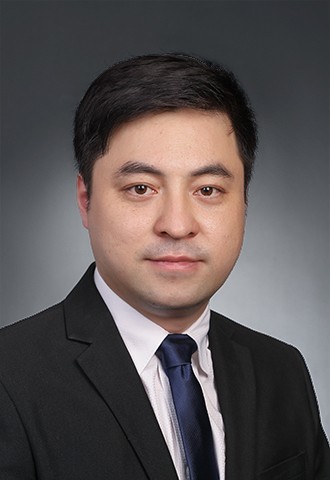-

- Lu Chuanying
- Senior Research Fellow
- Center for American Studies
- Institute for Global Governance Studies
- China's specific security review on overseas-bound data
- China's top internet regulator mulls more specific security review on overseas-bound data
- Prof. Lu Chuanying interviewed by CGTN on Data Security
- Prof. Lu Chuanying interviewed by SCMP on cybersecurity review
- Prof. Lu Chuanying interviewed by SCMP on cross-border data flow and cyber security
- How to Make a Truly Democratic and ...
- China can inject new dynamics into ...
- How G20 meeting could defuse world ...
- ‘Belt and Road’ initiative must wor...
- China’s Foreign Policy under Presid...
- Criticism of CPEC is proof of progr...
- Can China help shape global governa...
- The Contexts of and Roads towards t...
- Seeking for the International Relat...
- China’s Emerging Cyberspace Strateg...
- Fostering the cross-border infrastr...
- The Belt and Road Initiative and Th...
- Wuhan 2.0: a Chinese assessment
- The Establishment of the Informal M...
- Identifying and Addressing Major Is...
- Identifying and Addressing Major Is...
- “Polar Silk Road”and China-Nordic C...
- “Polar Silk Road”and China-Nordic C...
- Commentary on The U. S. Arctic Coun...
- China’s Economic Initiatives in th...
- G20 Development Agenda and 2030 Age...
- BRI in Oman as an example: The Syn...
- The US Initiatives in Response to C...
- Competition without Catastrophe : A...
- China-U.S. Cyber-Nuclear C3 Stabil...
- Addressing the Vaccine Gap: Goal-ba...
- The G20’s Sovereign Debt Agenda:Wha...
- The G20’s Sovereign Debt Agenda:Wha...
- Addressing the Vaccine Gap: Goal-ba...
- Addressing the Vaccine Gap: Goal-ba...
“No one can say with certainty that their products are definitely safe” Lu Chuanying
This oversight group has annually released a report of its activities, including rigorous tests done on the company’s hardware and software. Its latest report, published in March 2019, said “further significant technical issues have been identified in Huawei’s engineering processes”, which could lead to new risks in
the country’s telecoms networks. “The oversight board continues to be able to provide only limited assurance that the longterm security risks can be managed in the Huawei equipment currently deployed in Britain,” the report said. The board added, however, that it “does not believe the defects identified are a result of Chinese state interference”, indicating they covered basic engineering competence and cybersecurity hygiene.
At the cybersecurity centres, testing is done out of the public view by technical experts, including those from carriers and regulators, to check on Huawei’s software engineering and cybersecurity competence. Britain’s
National Cyber Security Centre, the authority for information assurance, also visits Huawei’s offices in Shenzhen and Shanghai to discuss technical issues.
Walter Haas, chief technology officer at Huawei Germany, said the company’s track record showed it had not lost any client because of cybersecurity issues. He said telecoms carriers thoroughly tested and verified
equipment for one to two years before committing to a supplier.
“They’re not giving us market share because we’re nice … or cheap,” Haas said in an interview at Huawei’s offices in the western city of Dusseldorf. “Do you really believe that network operators, in this very competitive environment, will put [middling] technology into their network for an investment cycle of eight to 10 years because it’s cheap?”
Huawei is adamant that its products, including smartphones under its consumer business, are safe and has insisted Washington prove its accusations about spying.
Security vulnerabilities are inevitable, largely because software code is written by humans who will make mistakes, according to Lu Chuanying, secretary general of the Cyberspace International Governance Research Centre at the Shanghai Institute for International Studies. “Therein lies the issue – are these issues and security flaws subjective or objective?” Lu said. “Here lies the biggest dilemma, because no matter which supplier, whether Huawei or others, no one can say with certainty that their products are definitely safe.” Since there is no universal standard to measure the security of telecoms equipment, that makes it difficult for companies to absolutely guarantee the security of their products. As such, weaknesses are interpreted differently by various parties.
“It’s like this – if my friend is holding a knife, I might think he’s planning to chop up some vegetables,”
Lu said. “But if it were my enemy holding a knife, I might assume he’s planning to stab me.”
Source of documents:South China Morning Post,April 13th
